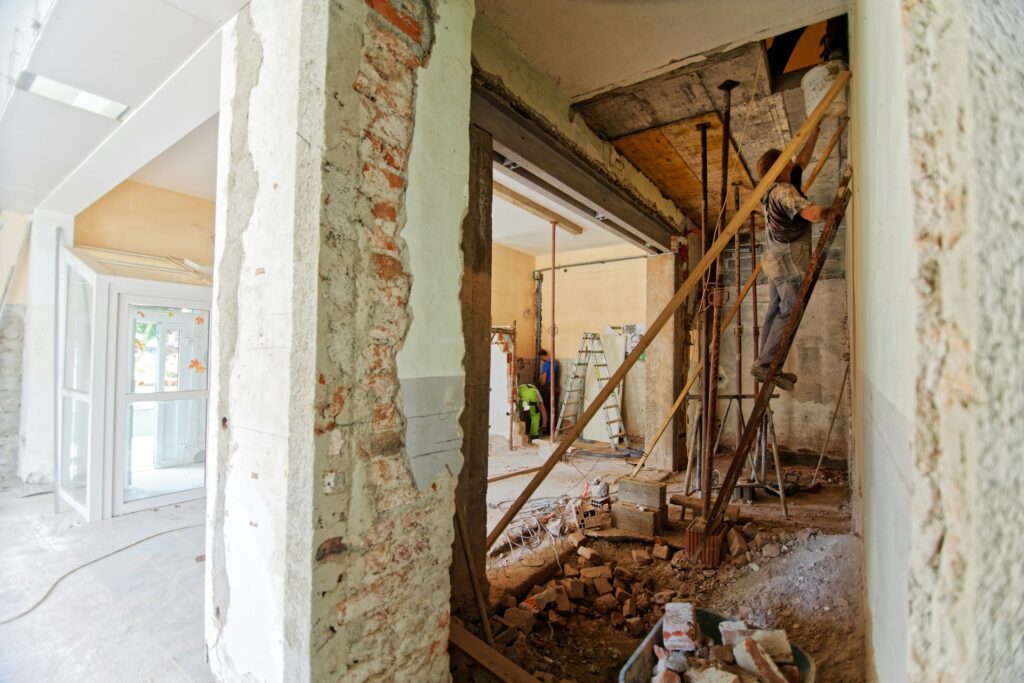
We are reader-supported. When you buy through links on our site, we may earn an affiliate commission.
Whenever you enter into a contract during a renovation, each item should be appropriately outlined — including what you’re being charged. Addressing overcharges helps maintain accountability and trust between the client and the contractor. This also helps protect your financial interests by ensuring you are not paying more than you have to.
1. Make An Initial Assessment
Review the signed contract and the scope of work agreed upon by both parties. Analyze the terms, pricing details and provisions relevant to change orders or additional charges. It’s essential to review the contract carefully to check for any discrepancies. Next, compare the agreed-upon pricing versus the actual expenses that the contractor asks you for. Check the bills and invoices to ensure that these align with the terms stated in the contract.
Be keen to check the breakdown of costs such as materials, labor and other additional charges. Look for any inconsistencies that can signify overcharging. When your contract starts, it’s crucial to document everything in case you need to check something in the future. This can include emails, text messages, discussions and agreements.
2. Communicate With the Contractor
After identifying potential charges, it’s essential to initiate a conversation with the contractor. Be prompt, professional and open-minded as you express your concerns, then hear them out without judgment. Be assertive as you discuss the discrepancies you saw. It’s recommended to communicate through a written medium like email, but if verbal communication is better, then ask some witnesses to be in the room with you.
As you communicate, make sure to provide specific details and provide proof if you can. Show the invoices and other supporting documents that you have and highlight the areas where charges exceed the agreement. Ask if the contractor can understand where you’re coming from. Communication is not just a one-way street — give them time to explain why some extra charges were made.
Quickly dealing with the overcharges and communicating with the contractor prevents you from having a bigger headache in the future. This also trains you to be hands-on and deal with conflicts promptly.
3. Brainstorm and Negotiate Potential Resolutions
Once you hear the contractor’s side, open the conversation about the next steps. Make sure the dialogue is grounded in respect and openness. It’s also best to go through the dialogue professionally, responding with a resolution in mind rather than reacting emotionally.
You can propose solutions at this time, too. Consider adjusting the invoice to show the initially agreed-upon price or request a refund for the additional charge. If the contractor suggests another alternative, listen to them and make sure that the resolution is something both of you agree to.
During the dialogue, document everything you discussed, including adjustments or the agreed refund amount. Be specific as you take notes and include necessary details, like the new timeline and other terms. At the end of the discussion, both parties should sign the paper and keep copies.
If you firmly believe that the contractor made a mistake, stand your ground and focus on the evidence and facts. Don’t let the contractor downplay the issue or dismiss what you’ll say. More importantly, how you deliver or communicate is as important as what you want to say. So make sure that you remain objective throughout.
4. File a Complaint If Necessary
You’ll never know how the dialogue will turn out. Sometimes, even if you explained and showed enough proof, the other party might be too defensive to accept any faults. In case the contractor is not cooperative and is not willing to settle the problem, the next step is to file a formal complaint.
You can also contact consumer protective agencies like the Bureau of Consumer Protection or Better Business Bureau. Ask them the next steps in filing a complaint and what other necessary steps you need to take.
5. Go to a Lawyer
If both parties can’t find a resolution or if the amount mentioned by the contractor is unsatisfactory, it’s better to seek expert advice from a qualified legal professional. They can give recommendations on what to do if a contractor overcharges you. Collect invoices, contracts, receipts and correspondences that can serve as evidence for the legal professional to study your case.
Ensure you give the whole story and a detailed account of events. It would help if you also told them about the most recent discussion with your contractor and how they responded. It’s better to prepare some questions if you have any and ask about the best course of action.
Potential Reasons Why Contractors May Overcharge You
Overcharging by the contractor can be an honest mistake. Some might not have foreseen the price rise in materials, but the important thing is that they’ll be accountable and transparent with you and explain why it happened. It could be:
- Changes in orders: If the client requests additional material or changes, it can result in more changes expected because of more labor from the contractor. However, it’s crucial that the contractor shows transparency about the additional charges and justify why they increased.
- Unforeseeable circumstances: Every construction project is unique and often unpredictable. If unexpected changes occur to the schedule, material and labor costs may increase.
- Incorrect estimations: Your contractor might need to correct the price of materials, project requirements or labor during the estimation phase. It might also be because they based the pricing on a previous rate without considering inflation and current trends.
- Lack of transparency: In some severe cases, unethical and unprofessional contractors want to make more money without earning it properly.
How to Prevent Your Contractor From Overcharging
You never know what will happen when you enter into an agreement with a contractor. That’s why it’s essential to know what to do if a contractor overcharges you to make sure there aren’t any problems. It’s best to use strategies that will protect your renovation interests:
- Ask for a written estimate and a contract: An estimate should cover necessary materials, labor costs and miscellaneous and other expenses related to the project. Review each item carefully and ask questions if there’s any unclear information. In addition, a contract should contain the scope of work, timelines and payment terms. A contract will be the official document if you need a reference when things become unclear.
- Clearly communicate your expectations: Articulate your expectations to the contractor and make sure you express your desired quality and other specific materials that you want. As you communicate your expectations upfront, you create a shared understanding.
- Track the project progress: Visiting the worksite helps in terms of assessing if the timeframe of the project is met. This can also build a better rapport with your contractor early on.
What To Do if a Contractor Overcharges You
There’s always a solution to contractor issues, but you should also be knowledgeable about the matter. Maintaining integrity and honesty is very important in any working relationship. When you see any discrepancies, it’s best to communicate them and talk constructively about how that happened. Be open to hearing the contractor’s side as well and always keep in mind that you both want a clear resolution.










